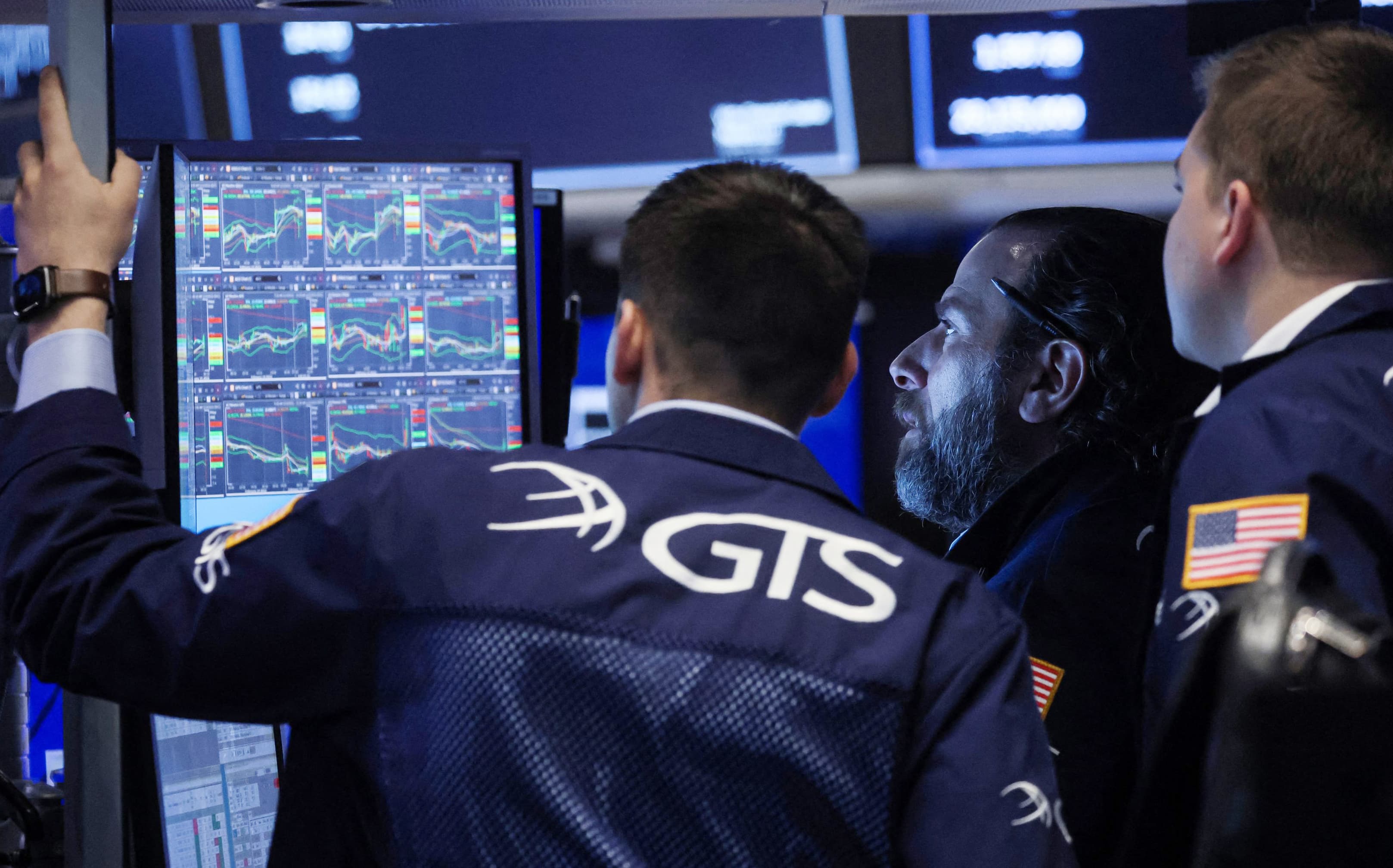Dow futures drop nearly 500 points as tensions between Russia and Ukraine brew

Traders work on the floor of the New York Stock Exchange (NYSE) in New York City, U.S., February 15, 2022.
Brendan McDermid | Reuters
Stock futures fell sharply early Tuesday morning, as traders continue to monitor brewing tensions between Russia and Ukraine.
Futures tied to the Dow Jones Industrial Average were down by 493 points, or 1.39%. S&P 500 futures slid 1.74%, and Nasdaq 100 futures were off by 2.6%. The U.S. stock market was closed Monday due to the President’s Day holiday.
Oil prices rose, with West Texas Intermediate futures jumping 3.95% to $94.67 per barrel.
Russian President Vladimir Putin said Monday that he would recognize the independence of two breakaway regions in Ukraine, potentially undercutting peace talks with President Joe Biden. That announcement was followed by news that Biden was set to order sanctions on separatist regions of Ukraine, with the European Union vowing to take additional measures.
Putin later ordered forces into the two breakaway regions.
The news came after the White House said Sunday that Biden has accepted “in principle” to meet with Putin in yet another effort to deescalate the Russia-Ukraine situation via diplomacy. White House press secretary Jen Psaki said the summit between the two leaders would occur after a meeting between Secretary of State Antony Blinken and his Russian counterpart Sergey Lavrov.
The Russia-Ukraine conflict has put pressure on market sentiment recently, with the major averages posting back-to-back weekly losses. The Dow fell 1.9% last week, and the S&P 500 and Nasdaq Composite slid 1.6% and 1.8%, respectively.
Traders are also keeping an eye on the Federal Reserve, as the U.S. central bank is expected to raise rates multiple times starting next month. According to the CME Group’s FedWatch tool, traders are betting that there is a 100% chance of a Fed rate hike after the March 15-16 meeting.
Expectations of tighter monetary policy have put pressure on stocks, particularly those in rate-sensitive sectors like tech, and have sent Treasury yield sharply higher to start 2022. The benchmark 10-year Treasury yield ended last week around 1.93% after briefly breaking above 2%. The 10-year began 2022 trading at around 1.51%.
“All eyes are on the Fed,” Strategas investment strategist Ryan Grabinski wrote in a note released Friday evening. “As of today, the market is expecting the Fed to raise interest rates at nearly every meeting this year. Despite that, we left Monetary Policy as Favorable for now because the Fed is continuing to purchase Treasuries (an accommodative policy action).”
Meanwhile, Wall Street is preparing for the tail-end of the corporate earnings season, with Home Depot and eBay among the companies set to report this week. It has been a solid earnings season thus far: Of the more than 400 S&P 500 companies that have posted fourth-quarter earnings, 77.7% have beaten analyst expectations, according to FactSet.
Subscribe to CNBC PRO for exclusive insights and analysis, and live business day programming from around the world.




